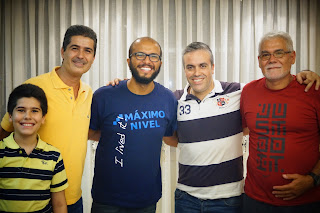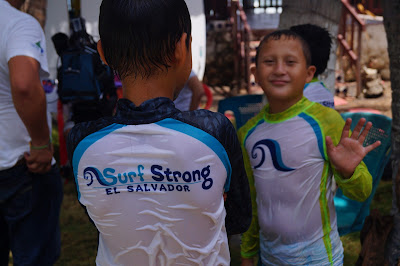Last month was my Dad's 64th anniversary. “Ah wait, What? 64?”, I asked myself - ten times. I mentally subtracted the years and the age difference of my parents – multiple times. When I spoke with him, he told me joking “I’m turning 46, what do you mean?”. Yes, I'm not confused he is really 64. Even though my Dad is not travelling with us, he has been an important piece of this puzzle, of my travels, of my adventurous blood. He is the reason of my appreciation for the ones who leave everything behind and go, hunting for more. He is the reason why we went to Venezuela during our round the world trip.
When he was 14, 1951+14, his Mother and 6 brothers left a tiny little place in Portugal and joined his patriarch in Venezuela. He left Portugal illegally and after 10 days on a boat journey they arrived in Caracas. Back in the times the main motivation for immigration was already economic, adding up, a deep and long dictatorship and an imminent military service for the portuguese colonial war.
Work was a priority. That's what he did when he arrived in Caracas. Surrounded by an environment of entrepreneurs, family businesses and hardworking he became his own boss at a young age. In one of his rare visits to Portugal he met my Mom, they collected a bag full of love-letters, exchanged across the ocean, and they got married in his late 20s, 1951+28, in Portugal. They decided they would live in Portugal and after wrapping up in Venezuela, my Dad returned. It was time to start all over again, 1951+32.
My dad used to tell us the stories, show us pictures of his favourite places, pictures of family but we never really understood what was it like to live and work in Venezuela all those years. My mom never went to Venezuela and until recently that was the case to me and my sister. Yes, my sister joined us this August in Caracas. We gladly can say we went, we saw it, we took pictures, we now understand it (him) a little better.
Few of the same-kind-blood, that first arrived in Venezuela even before my Grandfather, never came back to Portugal. When we arrived we were welcomed by a family-crew that made our time in Venezuela unforgettable. They were with us all the time, caring for us, protecting us, helping us making dreams come true. I can't even think how it would have been without them. Thank you, all of you! Thanks to the Miami-family, even far away, they did it again <3!









Caracas is located in a valley and it's hectic, noisy, polluted but fascinating. As it has always been to me. From the window of the 15th floor´s we could see Mount Avila, an imposing mountain that separates the city from the Caribbean Sea and shapes most of the city’s landscape. That same window presented us the packed streets, crowded highways and the uphill neighborhoods, one morning the echo of gun shots coming from those sides were clearly audible. From the same window, a little bit to the right, Chavez's banners were unwelcoming visible too. In our adventures in the city we walked through Quinta Crespo, my Dad´s old neighborhood. We hunted for the famous Ungria, the shop where his dry-cleaning business started. We gladly ate loads of arepas, typical corn-flour bread, and we poorly made them. The stories my sister and I heard all our life couldn't be more truthful.
Venezuela is a beautiful country. With a unique and diverse nature, 40% of its territory is protected area, from beach to mountain, from rainforest to a (mini)desert. It also hosts the world's highest waterfall, Salto Angel in its extraordinary 978m high. Deep in Canaima's National Park it took us 12h bus ride from Caracas to Puerto Ordaz, 1h airplane to Canaima, 4h ride in a curiara (motorized canoe) and finally 1h hike to arrive in the most accessible part of the falls. Swimming in the small pool that forms below it was rewarding and hard to get to.






Don't be fooled by the beauty, Venezuela is unfortunately dangerous. One lives concerned, worried most of the time: your phone, your wallet, your clothes, your shoes, your life. As my father tells, around 1951+26 what was supposed to be a family weekend outside of Caracas' outskirts became an experience of survival. My Dad, his brother, uncle and cousin were robbed, kidnapped and their car hijacked. After hours of driving with no clear direction, the bandits dropped them in the middle of a pitch dark Venezuelan jungle. They thought they were going to be "shot and left to the crows", but no violence was used and they were just left behind, unharmed. Their next challenge was to find their way back, and walked for hours reaching eventually the closest pueblo, safely. Economically, the explosive and powerful country that my Dad once lived and spoke about is nowadays in imminent collapse. The economy is weak, drained, exhausted. International companies are retracting investment, (hyper)inflation is pushing small business owners to shut the door, the supermarkets lack basic products, the tourists come visit less and less. The current exchange rate is a total joke - in the black market 100 BsF, the largest country's bill, was worth 14cents of a dollar at the time. The legislative elections upcoming December (if they occur) are, to many, the last opportunity they have to hope for a change. Many, though, are already hopeless.
Venezuela is the beauty and the beast. The incredible extraordinary nature. The potential. The family history. The endurance and fear in the future. The absence of political sovereignty. The terrible economic vision and strategy. All so hard to balance and accept. Venezuela's dualities makes my chest hurt.
Eventually I realized with this trip, 1985+30, a deeper and important side of myself. With no intentions of doing so, all these years I've been ignoring a crucial side of my father's life. I realize now how influenced he was by the many years of that south american way-of-life. That Venezuela inspired his entrepreneurship and his family-business mindset. His constant fight for more and better, the ambitious and risky decisions he takes in nowadays, have been urged by many years of daring. It took me long to know the Venezuela from nowadays, by myself. But this Venezuela ignited my consciousness and respect. Now, I know (a little) better. I know that my Dad is aging, I know I'm greatly proud of his story and I'm so thankful of all he teaches me. I´m so intensively grateful.
“Sooner or later , that moment should arrive for most adult children: the startling realization that the father or mother aged.”
Lionel Shriver,
So Much for That




































































